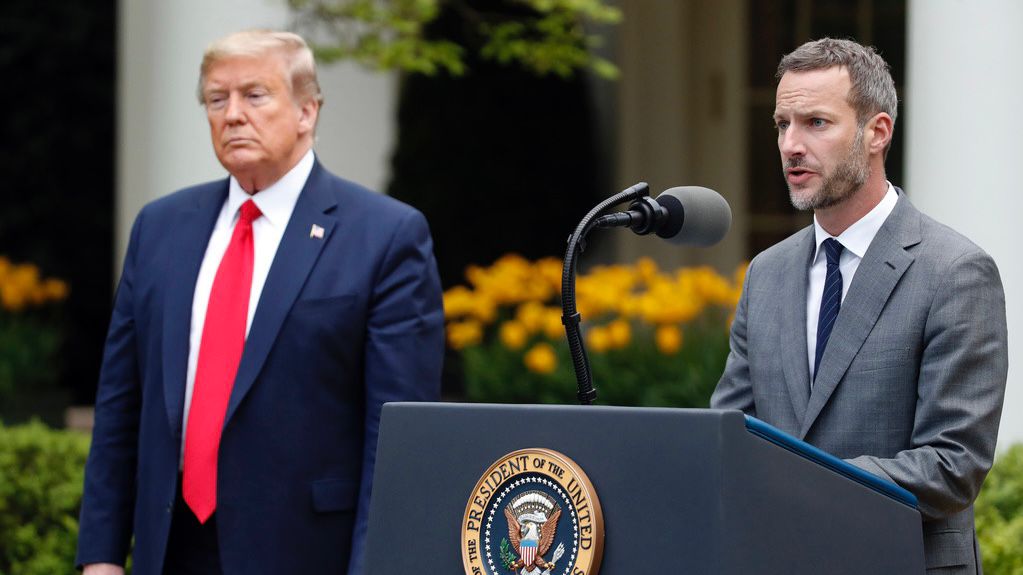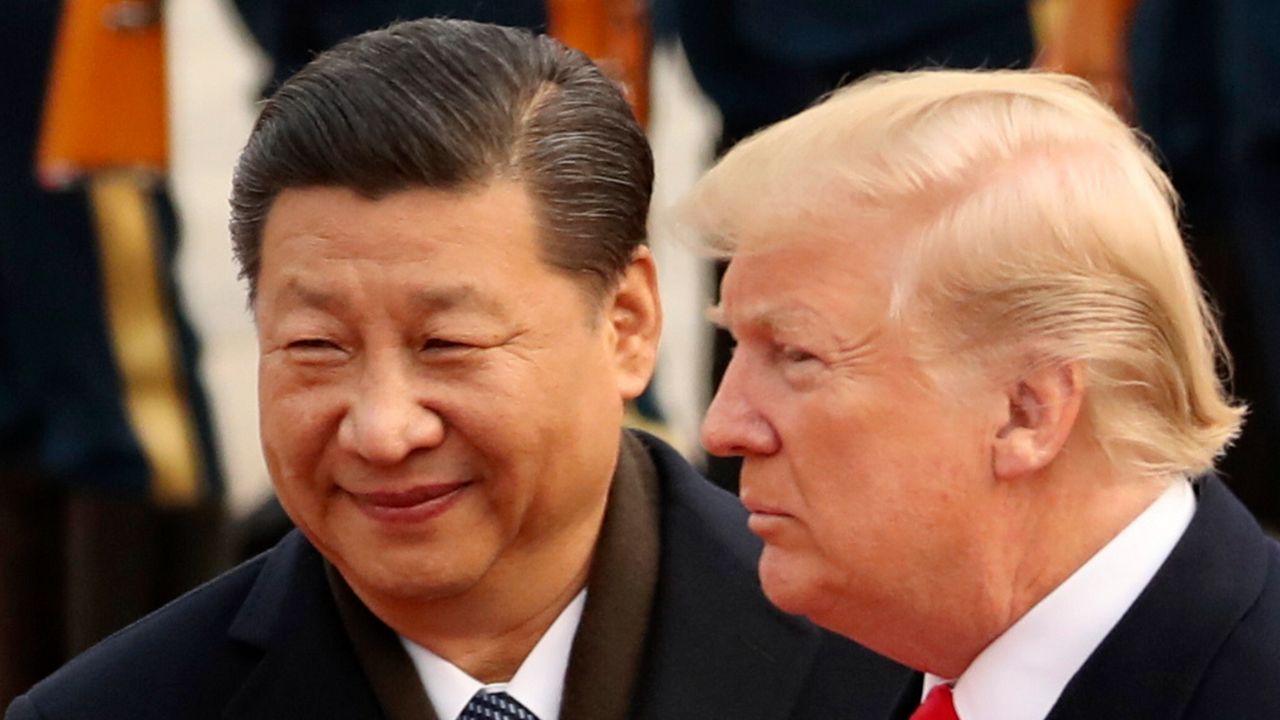A pandemic-era public health order used to turn away migrants and asylum seekers at the United States border is just days from being lifted, leading to fears that the border may soon be overwhelmed with migrants seeking entry to the U.S.
"Even after nearly two years of preparation, we expect to see large numbers of encounters at our southern border in the days and weeks after May 11. We are already seeing high numbers of encounters in certain sectors," Homeland Security Secretary Alejandro Mayorkas said at a press conference Wednesday. "Our plan will deliver results, but it will take time for those results to be fully realized. And it is essential that we all take this into account."
"We are a nation of immigrants. We are also a nation of laws. Our immigration laws are outdated. The solution we are implementing are the best available within our current legal authority, but they are short term solutions to a decades-old problem," he added.
In the lead-up to the expiration of the rule, Title 42, the Biden administration is looking to alleviate concerns about the policy change.
"The lifting of the Title 42 public health order does not mean our border is open," Mayorkas said "In fact, it is the contrary," detailing "tougher consequences for people who cross the border illegally."
“When the Title 42 order lifts at 11:59 p.m. on May 11, the United States will return to using Title 8 immigration authorities to expeditiously process and remove individuals who arrive at the U.S. border unlawfully," DHS said in an April fact sheet.
State Department officials on Tuesday offered more details on the federal government’s planned response to lift Title 42 and return to Title 8, the section of federal law that enumerates the rules for processing migrants, including those for deportation. Title 8 was the rule in place until the Trump administration installed Title 42 in an effor to quickly expel migrants.
Officials said that, just as much as the government seeks to offer legal entry for migrants, it also seeks to punish illegal attempts at entering the country.
“Individuals who unlawfully cross the U.S. border, instead of pursuing these legal pathways, will be subject to the consequences of their act and should not allow themselves to be fooled by smugglers,” an official said. Those consequences will include expedited deportation that will generally happen within days, a five year ban on re-entry to the U.S., potential criminal prosecution for repeat attempts at crossing the border and presumed ineligibility for asylum in most cases.
Officials also noted that the Biden administration will implement “a comprehensive, multi-agency, multi-country plan rooted in enforcement, deterrence and diplomacy to humanely manage the border.” That includes up to 1,000 asylum officers to handle interviews along the border, 24,000 law enforcement officers deployed to the border and 1,100 new border patrol processing coordinators.
"We are finalizing a new rule to encourage individuals to use available lawful, safe and orderly pathways to enter the United States," Mayorkas said Wednesday. "The rule presumes that those who do not use lawful pathways to enter the United States are ineligible for asylum. It allows the United States it allows us to remove individuals who do not establish a reasonable fear of persecution in the country of removal. Noncitizens can rebut this presumption only in very limited circumstances."
He also said the U.S. is launching a digital advertising campaign in Central and South America to "counter the lies of smuggles with accurate informaton about U.S. immigration laws."
"Smugglers have long been hard at work, spreading false information that the border will be open after May 11. It will not be. They are lying," Mayorkas said. "They do not care about you or your well being. Do not believe their lies. Do not risk your life and your life savings only to be removed from the United States."
Law enforcement has arrested nearly 10,000 smugglers during the Biden administration, according to Mayorkas, and the U.S. is working with Columbia and Panama to stop smugglers before they reach the border.
Major portions of the U.S. plan are rooted in the Los Angeles Declaration on Migration and Protection presented at the Summit of the Americas last June, in which more than 20 leaders from across the Americas committed to plans promoting migration programs, labor programs, and plans to combat human smuggling. Administration officials said last year that the declaration is “centered around responsibility sharing…for countries that have been the most impacted by refugee and migration flows.”
That includes “expansion in lawful pathways to the U.S.,” including an approval process that admitted more than 100,000 people from Cuba, Nicaragua, Haiti and Venezuela to the United States, as well as more than 100 “regional processing centers” throughout the Americas that seek to rapidly screen people at the border and determine if they’re eligible for any of the pathways to the U.S., Canada or Spain. Those centers will be staffed by more than 140 agents from DHS, the State Department and United States Citizenship and Immigration Services.
The government is also pushing its own app for U.S. Customs and Border Protection, CBP One, which it describes as a “single portal to a variety of CBP services,” including the ability to make appointments at points of entry. According to officials, appointments will start at up to 1,000 per day starting May 12, and may increase over time.
Mayorkas took care to speak to the results of the government's efforts at the southern border — while broadly blaming Congress for inaction. On Tuesday, officials spoke more specifically, attempting to decry policies and political plays by GOP officials. Mayorkas on Wednesday noted 1.4 million people were expelled or returned to their country of origin from the United States last year, out of an estimated 20 million displaced people in the Western hemisphere.
"I cannot overemphasize that our current situation is the outcome of Congress leaving a broken outdated immigration system in place for over two decades, despite unanimous agreement that we desperately need legislative reform," Mayorkas said. "It is also the result of Congress's decision not to provide us with the resources we need and that we requested."
A parole process intended to create a legal path for entry by Cuban, Haitian, Nicaraguan and Venezuelan migrants with American sponsors was blocked by a lawsuit filed by officials from 20 Republican-led states. According to CBS News, daily averages of migrant arrests along the U.S.-Mexico border fell by more than 40% after the parole program was put in place.
“Let’s be honest, there is far more that we could do if Congress would act,” one official said on Tuesday. “We know the next couple of days will be difficult, but we believe the plant that we’re putting in place is sustainable and will really set an example for the rest of the world.”









